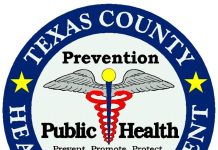By Eric Bohl
A Missouri Farm Bureau survey brings to life many of the hidden effects of COVID-19 on farmers and rural communities. While the on-farm impacts have been dramatic, the personal effects are even more painful to read: “I have not seen my first grandchild yet.” “My daughter didn’t get to get married like she planned.” “I’m lonely and miss my friends.”
Many respondents expressed feelings of isolation, loneliness and even depression. Inability to attend church and fellowship with friends has had a big impact on rural life. Although there were many differing opinions, over 63 percent of respondents agreed or strongly agreed that they take COVID-19 seriously.
Several people were upset by disruptions of normal social activities. “Not being able to gather is really hard. A graduation, a wedding and even a funeral have been disrupted,” said one. Another respondent described similar heart-wrenching situations. “I wasn’t able to visit my daughter in the hospital. My son missed his junior prom, and we won’t get to see him graduate from his US Army basic training in a couple months.”
The agricultural effects have been severe as well. Nearly one-quarter of livestock farmers surveyed (23.5 percent) have had a meat processor reduce the normal schedule of animals they deliver for processing. The same percentage have had to locate an alternate processing facility for animals.
The economic shutdown made it difficult for many farmers to do their jobs. One out of every eight farmers said they had experienced disruptions getting equipment. Many more expressed frustration in finding parts.
At the beginning of the shutdown, Congress and the Trump administration moved quickly to provide help to businesses. The Paycheck Protection Program (PPP) was created to help businesses stay afloat through the shutdown. The U.S. Department of Agriculture formed the Coronavirus Food Assistance Program (CFAP) to provide specific support to farmers across the country.
Unfortunately, many farmers did not apply for PPP. Our survey found that only 13.4 percent of farmers received support through the program. Livestock producers had an especially hard time qualifying, as only 4.9 percent of farmers who only raise livestock received help.
The CFAP program is much better targeted to help farmers. At the time of the survey, 58 percent of livestock farmers planned to apply for CFAP funds, and just over 50 percent of all farmers.
As Congress debates further COVID-19 aid, respondents had many different requests. Livestock producers suggested more investigation into meatpacker consolidation and pricing issues. Missouri Farm Bureau strongly supports this request. Numerous respondents also suggested stronger provisions to protect family farms, more equitable price support for grain and livestock, support for ethanol and biodiesel and incentives for more meat processing plants.
The survey was completed by 377 people, about three-quarters of whom are farmers and 95 percent of whom are Missouri Farm Bureau members. Responses were solicited from MOFB newsletter subscribers and collected during the second week of June.
Eric Bohl, of Columbia, Missouri, is Director of Public Affairs and Advocacy for Missouri Farm Bureau, the state’s largest farm organization.





